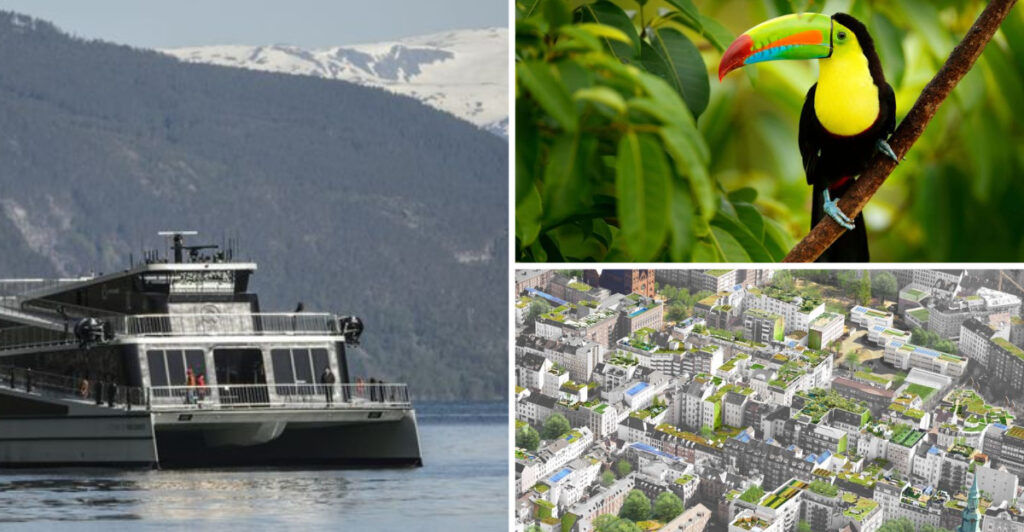Embarking on a journey around the world, one can’t help but notice the growing emphasis on sustainability. These 30 eco-friendly countries have not only embraced green practices but offer captivating experiences for the conscious traveler. From lush landscapes teeming with biodiversity to urban centers prioritizing renewable energy, each destination provides a unique window into a more sustainable future. Join me as I explore the very essence of what makes these countries stand out in the quest for ecological balance.
1. Iceland

Iceland, known as the land of fire and ice, is a geothermal wonderland. With its abundant hot springs and commitment to renewable energy, Iceland sets a benchmark in sustainability. The scenery here feels otherworldly, with geysers and volcanoes punctuating the landscape.
Visitors often find themselves mesmerized by the Northern Lights, a natural phenomenon that paints the sky in vibrant hues. This small island nation uses geothermal power to heat its homes, reducing dependence on fossil fuels significantly.
Did you know? Iceland’s capital, Reykjavik, is one of the cleanest cities in the world, largely due to its geothermal activity. Exploring this city offers a glimpse into the future of urban sustainability.
2. Costa Rica

Costa Rica is synonymous with biodiversity. This Central American gem is a world leader in eco-tourism, boasting a remarkable array of flora and fauna. Its rainforests are alive with the sounds of nature, a symphony of birds and insects harmonizing in the background.
The country’s commitment to protecting its natural resources is evident in its extensive network of national parks. Adventure-seekers can zipline through the canopy or hike to volcanic peaks, all while respecting the environment.
Fun fact: Costa Rica aims to become the first carbon-neutral country in the world, a testament to its dedication to preserving our planet.
3. New Zealand
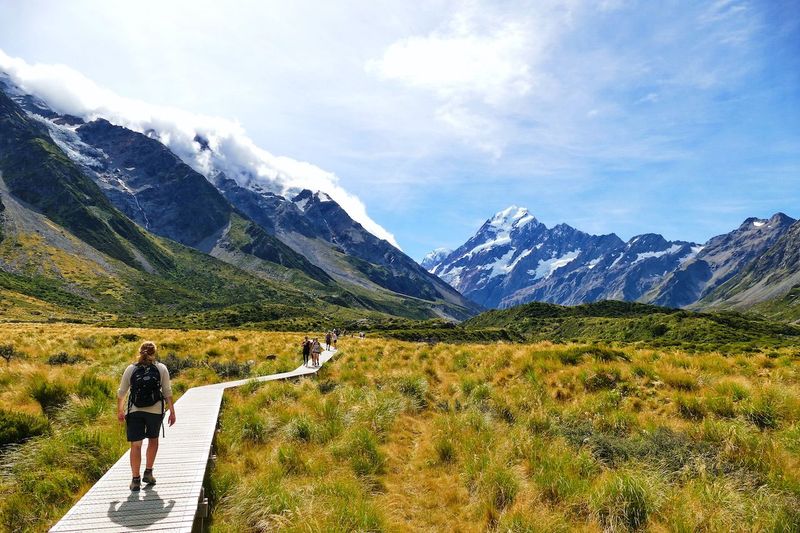
In New Zealand, nature reigns supreme. The country’s pristine landscapes are a testament to its environmental stewardship. From the majestic fjords to the rolling vineyards, every corner of New Zealand beckons travelers to explore and admire its natural beauty.
Kiwi culture is deeply connected to the land, and conservation efforts are part of everyday life. The country’s wildlife sanctuaries are havens for endangered species, offering protection and hope for the future.
Did you know? The concept of ‘kaitiakitanga’ is integral to New Zealand’s Maori culture, emphasizing guardianship of the land and sea.
4. Portugal
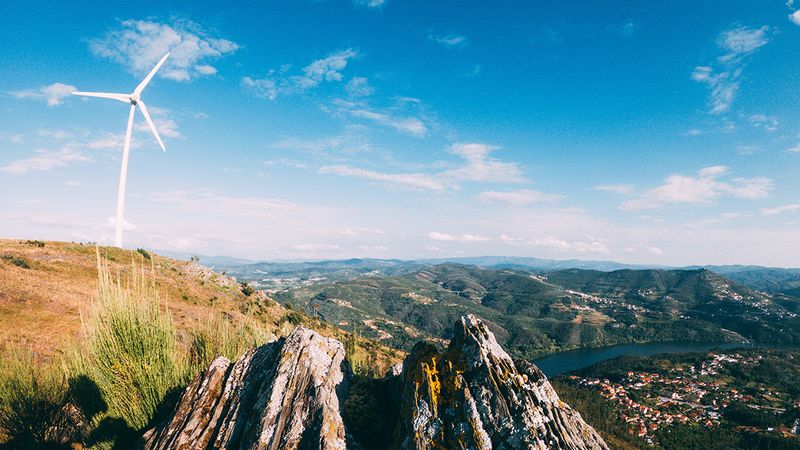
Portugal is making waves in the realm of renewable energy. On its sun-drenched coasts, wind turbines spin gracefully, a symbol of the country’s commitment to sustainability. The blend of traditional and modern practices is evident in Portugal’s approach to eco-friendly living.
The vibrant cities of Lisbon and Porto are bustling with innovation, where historic charm meets green technology. Every visit to Portugal is a chance to experience the harmony between past and future.
Interesting tidbit: Portugal’s Azores islands are a treasure trove of geothermal activity, providing a natural laboratory for renewable energy research.
5. Switzerland
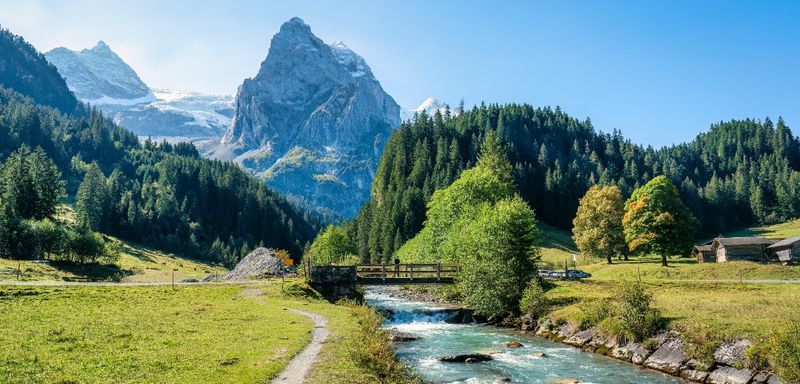
Switzerland, with its stunning Alps, is a model of eco-conscious living. The Swiss have perfected the art of balancing luxury with sustainability, evident in their exquisite resorts and efficient public transport.
The country’s dedication to preserving its landscapes is unmatched, with policies in place to protect its pristine lakes and forests. Swiss precision extends beyond watches to sustainable practices.
Fun fact: Switzerland’s recycling rates are among the highest in the world, showcasing a national commitment to reducing waste and conserving resources.
6. Bhutan

Bhutan is a beacon of sustainability nestled in the Himalayas. The kingdom’s philosophy of Gross National Happiness places equal importance on environmental conservation and cultural preservation. The landscape is dotted with monasteries and prayer flags, adding to its mystical allure.
Bhutan’s commitment to being carbon-negative is pioneering. Visitors are encouraged to immerse themselves in the tranquil nature, hiking through lush valleys and breathing in the crisp mountain air.
Did you know? Bhutan is the only country in the world with a constitutional mandate to maintain at least 60% forest cover at all times.
7. Norway
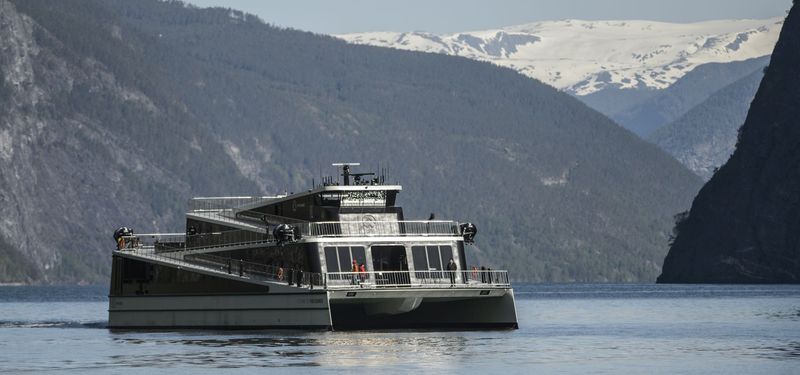
Norway’s natural beauty is legendary, with its dramatic fjords and northern lights. The nation is a leader in electric transportation, from ferries to vehicles, demonstrating a strong commitment to reducing carbon emissions.
The landscape is a paradise for outdoor enthusiasts, offering endless opportunities for hiking, skiing, and exploring the wild. Norway’s approach to sustainability is holistic, involving community and government efforts.
Fun fact: Norway generates almost all its electricity from renewable sources, primarily hydropower, showcasing its dedication to an eco-friendly future.
8. Finland
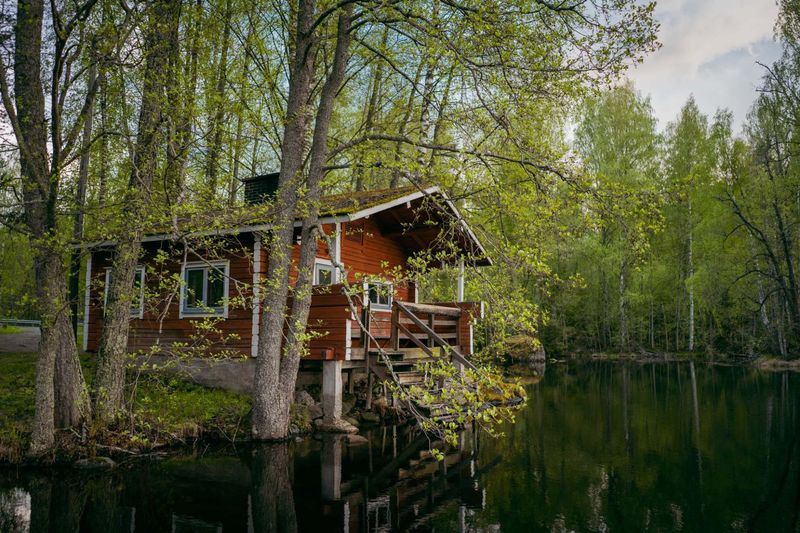
Finland is a haven for nature lovers, with its expansive forests and serene lakes. The Finnish concept of ‘Everyman’s Right’ allows everyone to roam freely in nature while respecting the environment. This principle is deeply rooted in Finnish culture and promotes a strong connection to the land.
Saunas are an integral part of Finnish life, offering a unique way to relax and rejuvenate, surrounded by nature’s beauty. The country excels in sustainable forestry practices, ensuring the longevity of its natural resources.
Did you know? Finland has been consistently ranked as one of the world’s happiest countries, with its sustainable lifestyle playing a significant role.
9. Sweden

Sweden is renowned for its green cities and innovative approach to sustainability. Urban planning here often includes extensive green spaces and efficient public transport systems, enhancing the quality of life for residents and visitors alike.
The Swedes embrace a lifestyle that prioritizes eco-friendliness, from recycling to energy conservation, making Sweden a leader in sustainable living. Every visit is an opportunity to learn from their environmental practices.
Interesting fact: Stockholm, the capital, was the first city to receive the European Green Capital Award, reflecting its dedication to environmental stewardship.
10. Denmark
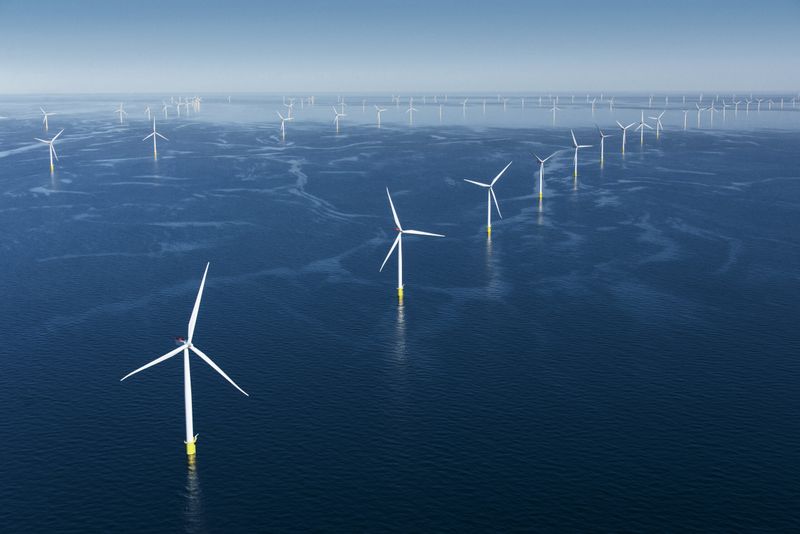
Denmark is synonymous with wind energy, a testament to its pioneering spirit in renewable technologies. The country’s coastline is lined with wind farms, providing a significant portion of its electricity.
Cycling is a way of life in Denmark, with expansive bike lanes weaving through cities and countryside alike. It’s a nation that embodies the principles of eco-friendly living.
Fun fact: Copenhagen aims to be the world’s first carbon-neutral capital by 2025, showcasing Denmark’s ambitious environmental goals.
11. Slovenia
In Slovenia, nature and sustainability go hand in hand. Imagine standing by the tranquil Lake Bled, where the water mirrors the Julian Alps. One can explore the vast Triglav National Park, teeming with biodiversity. Slovenia’s commitment to green tourism is evident in its eco-certifications and sustainable accommodations.
As you wander through Ljubljana, you’ll notice its car-free zones and vibrant green spaces. This city’s dedication to reducing carbon footprints while preserving cultural heritage is commendable.
Did you know? Slovenia was the first country to be declared a ‘Green Destination’ in 2016.
12. Botswana
Botswana’s natural wonders are as vast as they are protected. Imagine witnessing herds of elephants traverse the Okavango Delta’s lush wetlands. Botswana’s low-impact tourism model ensures that nature remains pristine and undisturbed.
Visitors can engage with local communities, learning about conservation efforts that safeguard wildlife habitats. This harmony between people and nature creates a unique travel experience.
Fun fact: Botswana has banned hunting, prioritizing wildlife conservation and making it a pioneering eco-tourism destination in Africa.
13. Rwanda
Rwanda, the land of a thousand hills, is a beacon of conservation success. Envision trekking through Volcanoes National Park to encounter the majestic mountain gorillas. The country’s stringent conservation laws have led to a revival of its wildlife.
In towns like Kigali, you’ll find clean streets and eco-friendly initiatives that focus on sustainability. It’s a testament to the nation’s progressive environmental policies.
Remarkably, Rwanda banned plastic bags in 2008, setting a precedent for ecological preservation worldwide.
14. Ecuador
Ecuador’s Galápagos Islands are a living testament to ecological wonder. Imagine walking amongst sea lions and iguanas, all thriving amidst untouched landscapes. The islands’ strict visitor regulations ensure minimal human impact.
Ecuador also excels on the mainland with its cloud forests and Amazon rainforest, offering eco-conscious lodges and guided tours. This blend of biodiversity and sustainability makes Ecuador a standout.
Did you know? The Galápagos were the first UNESCO World Heritage Site, highlighting their global environmental significance.
15. Japan
Japan’s juxtaposition of tradition and innovation extends to its eco-friendly practices. Picture the serene Shirakawa-go village, where traditional thatched-roof houses stand in harmony with nature. Japan’s dedication to green technology is evident in its widespread use of solar power and hybrid vehicles.
In cities like Kyoto, the preservation of historical sites goes hand-in-hand with environmental initiatives. The country’s lush national parks offer a refuge for endangered species and a retreat for nature lovers.
Fun fact: Japan has a unique forest bathing practice, promoting wellness through nature immersion.
16. Uruguay
Uruguay’s commitment to renewable energy is inspiring. Imagine vast wind farms standing tall against the Uruguayan sky, producing clean power. The country is a leader in wind and solar energy, with nearly 100% of its electricity coming from renewable sources.
Uruguay’s eco-friendly ethos extends to its agricultural practices, promoting organic farming and sustainable livestock management. Visitors can experience this culture firsthand by visiting local farms and markets.
Interesting fact: Uruguay’s sustainable energy model is one of the most advanced in the world.
17. Slovakia
Slovakia’s natural landscapes are a testament to unspoiled beauty. Picture the Tatra Mountains, where snow-capped peaks and dense forests invite exploration. Slovakia’s dedication to preserving these areas is reflected in its numerous national parks.
Visitors can enjoy eco-friendly accommodations and partake in sustainable outdoor activities. These efforts ensure that the natural wonders remain intact for future generations.
Slovakia’s commitment to conservation is evident in its protection of large carnivores like bears and wolves.
18. Maldives
The Maldives, renowned for its stunning beaches, is making waves in sustainability. Visualize snorkeling in crystal clear waters amidst vibrant coral reefs. The nation is focused on preserving its marine biodiversity through protected areas and eco-conscious tourism.
The Maldives’ commitment extends to renewable energy, with solar power being a key focus. This island paradise is not just a feast for the eyes but also a model for environmental preservation.
Did you know? The Maldives plans to be the world’s first carbon-neutral country.
19. Netherlands
The Netherlands is synonymous with cycling, exemplifying sustainable transport. Imagine riding through expansive tulip fields with iconic windmills dotting the landscape. The country’s extensive cycling paths reduce emissions and encourage healthy lifestyles.
Additionally, the Dutch commitment to renewable energy is evident in its wind farms and innovative water management. The integration of sustainable practices in urban planning sets a global standard.
Fun fact: The Netherlands aims to become fully circular by 2050, minimizing waste and maximizing resource efficiency.
20. Bhutan
Bhutan’s Gross National Happiness philosophy extends to its environmental policies. Picture the Paro Taktsang monastery, perched on a cliff amidst lush forests. Bhutan’s commitment to carbon neutrality is reflected in its vast protected areas that cover 72% of its territory.
The country’s sustainable tourism model limits visitors, ensuring minimal environmental impact and cultural preservation. This approach offers travelers a unique glimpse into Bhutan’s harmonious way of life.
Did you know? Bhutan absorbs more carbon than it emits, thanks to its dense forest cover.
21. Chile
Chile’s diverse landscapes are matched by its dedication to conservation. Envision exploring the dramatic peaks of Torres del Paine National Park, where nature remains untamed. The country’s national parks and reserves protect a vast array of ecosystems.
Chile’s commitment to renewable energy, particularly solar power in the Atacama Desert, is a model for others. As a traveler, you’ll find eco-friendly lodges and sustainable practices throughout the country.
Remarkable fact: Chile aims to become carbon neutral by 2050, leading the way in environmental responsibility.
22. Estonia
Estonia’s untouched beauty is a sanctuary for nature enthusiasts. Picture the vast Lahemaa National Park, where dense forests meet pristine waterways. Estonia’s commitment to conservation is reflected in its extensive protected areas and wildlife habitats.
The country’s digital innovations are matched by its efforts in sustainable development and energy efficiency. Visitors can explore eco-friendly accommodations and partake in nature-based activities.
Interesting fact: Estonia is one of the least densely populated countries in Europe, offering vast wilderness areas to explore.
23. Palau
Palau’s pristine marine environments are a diver’s paradise. Imagine exploring the vibrant underwater world of the Rock Islands, home to diverse marine life. Palau’s commitment to marine conservation is evident in its protected areas and sustainable tourism practices.
The nation’s proactive policies, like banning harmful sunscreens, reflect its dedication to preserving ocean health. Travelers can engage in eco-friendly activities that support local communities and environmental efforts.
Fun fact: Palau was the first country to introduce a ‘passport pledge’ for visitors to act as eco-friendly travelers.
24. Greenland
Greenland’s vast icy landscapes are a testament to nature’s grandeur. Picture the mighty fjords, where glaciers and icebergs create a stunning tableau. Greenland’s eco-tourism initiatives focus on preserving these pristine environments while engaging visitors with local culture.
The Inuit communities play a vital role in conservation efforts and sustainable practices. Visitors can partake in traditional activities that honor Greenland’s heritage and natural beauty.
Did you know? Greenland’s ice sheet is the second largest in the world, crucial to global climate regulation.
25. Singapore
Singapore’s urban planning is a marvel of green innovation. Envision the skyline, where futuristic designs harmonize with lush gardens. Gardens by the Bay exemplifies Singapore’s commitment to integrating nature within urban spaces.
The city-state’s sustainability efforts include comprehensive recycling programs and energy-efficient infrastructure. Visitors can explore eco-friendly attractions that showcase Singapore’s green vision.
Remarkable fact: Singapore aims to become the world’s first ‘smart nation,’ focusing on sustainability and technology integration.
26. Colombia
Colombia’s rich biodiversity makes it a haven for eco-conscious travelers. Imagine traversing the Amazon rainforest, where diverse flora and exotic wildlife abound. Colombia’s national parks and reserves protect these vital ecosystems.
The country’s commitment to sustainability is reflected in its eco-friendly tourism initiatives that support local communities. Visitors can experience the vibrant culture while contributing to conservation efforts.
Interesting fact: Colombia is the second most biodiverse country in the world, making it a treasure trove of natural wonders.
27. Kenya
Kenya’s iconic landscapes are synonymous with wildlife conservation. Picture the Maasai Mara, where wildebeest migrate across vast savannas. Kenya’s dedication to protecting its wildlife is matched by community-driven conservation efforts.
Visitors can participate in eco-friendly safaris that promote sustainable tourism and support local initiatives. This balance of conservation and community empowerment creates a meaningful travel experience.
Fun fact: Kenya is home to the Big Five, drawing wildlife enthusiasts from around the globe.
28. Peru
Peru’s ancient heritage is intertwined with its natural beauty. Imagine exploring Machu Picchu, where history and landscape merge. Peru’s commitment to preserving its cultural and natural treasures is evident in its conservation efforts.
Eco-friendly tours offer travelers a chance to experience Peru’s wonders while minimizing environmental impact. Visitors can immerse themselves in the vibrant culture and support sustainable initiatives.
Remarkable detail: Machu Picchu is a UNESCO World Heritage Site, symbolizing the fusion of history and ecology.
29. South Korea
South Korea’s blend of tradition and modernity extends to its environmental efforts. Visualize Seoraksan National Park, where majestic mountains offer breathtaking views. The country’s dedication to green technology and urban sustainability is evident in its eco-friendly infrastructure.
Visitors can explore traditional villages where sustainable practices are preserved and promoted. This fusion of past and present creates a unique eco-conscious experience.
Fun fact: South Korea has one of the highest recycling rates in the world, reflecting its commitment to environmental responsibility.
30. Scotland
Scotland’s rugged landscapes are a testament to natural wonder. Picture the Highlands, where rolling green hills meet ancient castles. Scotland’s environmental initiatives focus on preserving these iconic vistas through sustainable land management.
Visitors can enjoy eco-friendly hiking trails and participate in conservation projects that protect local wildlife. This commitment to nature ensures that Scotland’s beauty remains for future generations.
Interesting fact: Scotland aims to reach net-zero carbon emissions by 2045, leading the way in climate action.

